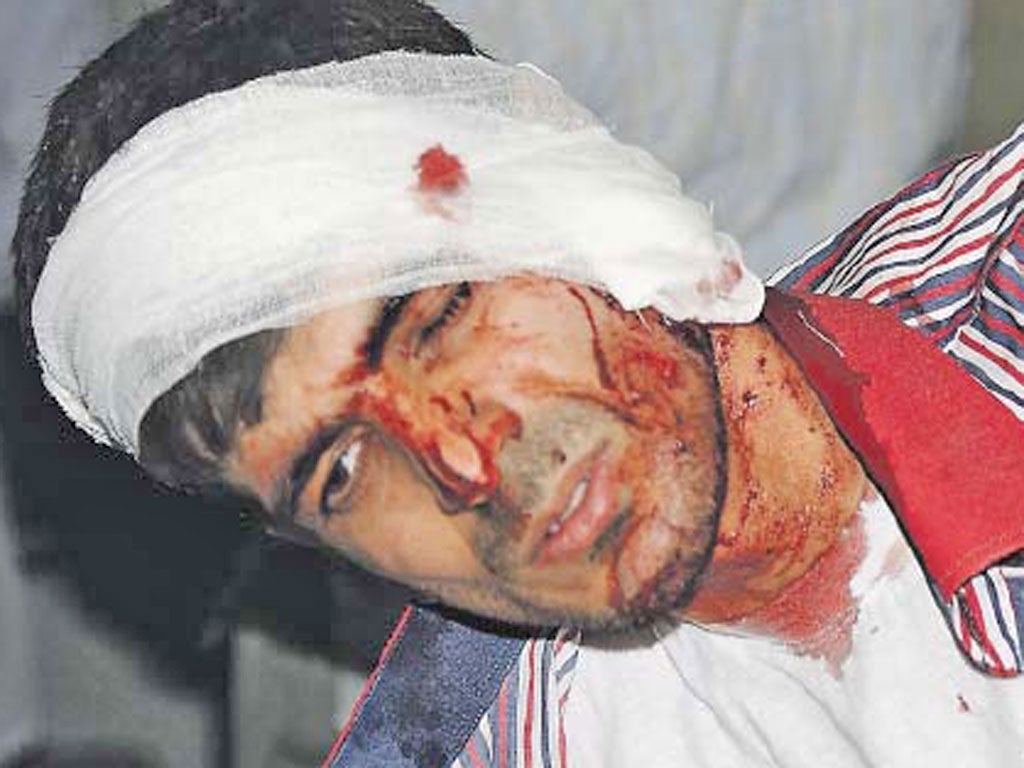At least 12 people wounded as car bomb explodes near major hotel in Damascus

A car bomb exploded near a major hotel in the Syrian capital, Damascus, today, wounding several people.
The powerful blast shook the Dama Rose hotel and shattered most of its windows. The hotel has been used in the past by UN observers visiting Syria, including the Damascus representative of the new UN-Arab League envoy to Syria, Lakhdar Brahimi.
The bomb, weighing about 50kg, went off about 500 metres from the army chief-of-staff's building. It is not the first blast to rattle the Dama Rose; on 15 August, another bomb attached to a fuel truck exploded outside the hotel, wounding three people.
The pro-government Ikhbariya TV channel said the bomb was planted beneath a car parked near a labour union building. Its chief, Mohammad Az-ouz, said at least 12 syndicate members were wounded by shattered glass and two of them were in critical condition. Regional satellite stations broadcast brief clips from the capital showing a plume of white smoke rising from a building. Mr Azouz said firefighters were putting out a blaze caused by the blast, while ambulances were taking the wounded to nearby hospitals. He said there were blood stains on the street.
In north-east Raqqa province, the state news agency Sana reported that gunmen had assassinated a leading member of the ruling Baath party. It said the militants broke into the home of Ismail al-Hamadeh at dawn and sprayed him with bullets as he slept.
Activists said the army also clashed with rebels in the cities of Idlib and Aleppo in the north, in Damascus, and in the southern border town of Daraa, where the uprising against President Bashar al-Assad began in March 2011.
In the Damascus suburbs of Harasta and al-Hajira, the army and opposition fighters exchanged heavy fire, killing a handful of rebels.
The fiercest fighting was reported in Harem on the edge of Idlib, where 30 civilians were killed, allegedly in clashes between rebels and the army. Sana said some activists died when the army destroyed their enclaves in the area and confiscated their weapons.
The London-based Syrian Observatory for Human Rights said the Syrian army launched air strikes on rebel hideouts in Idlib's suburbs, mainly Maaret al-Numan, killing an unspecified number of activists.
In Cairo, the international envoy, Mr Brahimi, met the Arab League chief, Nabil Elaraby, to co-ordinate a common Arab position on the Syrian conflict before a meeting with the Russian Foreign Minister, Sergey Lavrov.
A plan to shake up Syria's widely criticised opposition leadership and forge a more united representative body is set to be considered at meeting of anti-Assad elements in the Qatari capital, Doha. The dispute, which reflects the infighting and deep rifts that have hobbled the opposition since the revolt began, will be discussed at a five-day opposition conference.
AP
Join our commenting forum
Join thought-provoking conversations, follow other Independent readers and see their replies
Comments